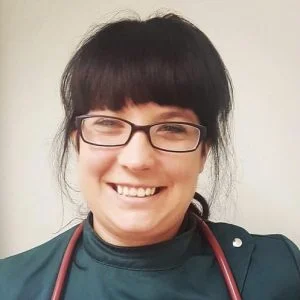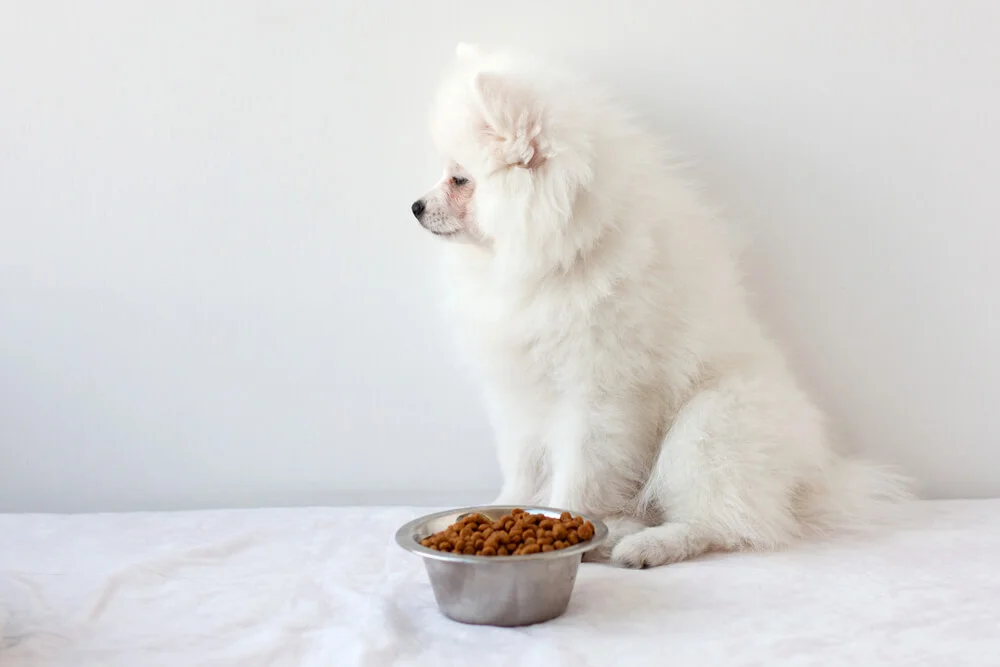
As pet parents, we want our dogs to eat a healthy and nutritious diet and we want them to enjoy their food. If your dog has a picky appetite, is a bit fussy, or has stopped eating because they’re poorly or in pain, it can be stressful. Before you panic, let’s find out how long a dog can go without eating, what you can do to encourage them to eat, and when you should be concerned.
How long can a dog go without eating?
Dogs need food and water to survive. However, if they are otherwise well, they can survive for around 5 days without food, as long as they are drinking.
It’s true that dogs have survived for much longer periods without food, but there is a great risk of irreversible damage to their organs and tissues, or death. If your dog hasn’t eaten anything at all for two days, you should speak to your veterinarian and book an appointment for a check-up. If they seem unwell, it’s best not to wait at all, as they may deteriorate.
How long can a dog go without eating or drinking?
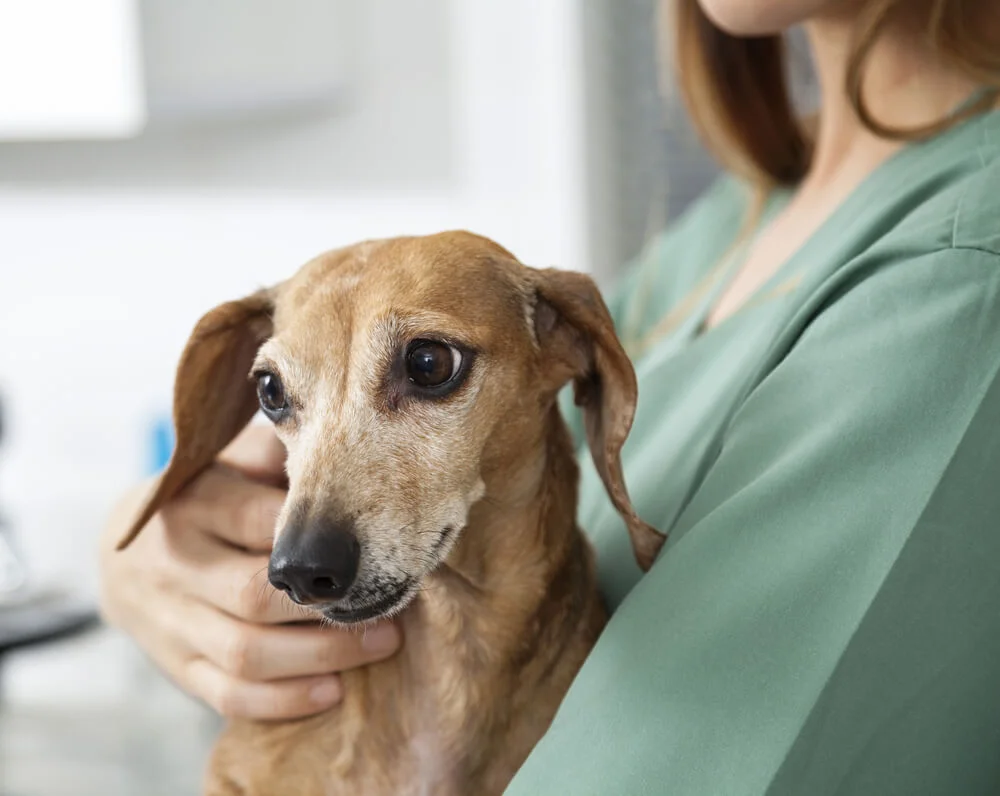
A healthy dog can survive for around 3 days without water, but longer than 24 hours could lead to permanent organ damage.
Dogs can survive without food for longer than they can survive without water. Without any water to drink, a dog will quickly become dehydrated. A healthy dog can survive for around 3 days without water, but longer than 24 hours will cause them to feel really unwell and could lead to permanent organ damage. So, it’s very important to contact your veterinary clinic if your dog doesn’t drink anything for 24 hours. To encourage your dog to drink, you can try syringing small amounts of water into their mouth, use a small amount of low-salt meat stock to flavor their water, or ask your vet for some rehydration liquid.
How long can a dog go without eating when they’re sick?
Although a healthy dog may be able to live for five days or more without food, a dog who is already unwell or has health issues may not be able to cope for so long. For instance, if your dog’s body is already weak, their organs struggling, or their weight is too low to have any reserves, going without food for just one day could have far more serious implications.
How long can a dog go without eating after surgery?
After an operation, anesthetic, or sedation, it’s normal for a dog to have a picky or non-existent appetite. This could be due to grogginess or nausea from the anesthetic, or it could be due to being in pain. If your dog doesn’t eat in the evening after their surgery, it’s usually nothing to be worried about. However, if they’re still not interested in food at all the following day, it’s worth checking with your veterinarian in case they need anti-sickness medication or pain relief.
How long can a dog go without eating before they die?
You definitely shouldn’t wait longer than a couple of days to contact your vet clinic if your dog isn’t eating anything at all. Dogs can survive up to 5 days or even longer, but as time goes on, the chances of long-term damage to their organs or even death increase.
What can cause a dog to stop eating?
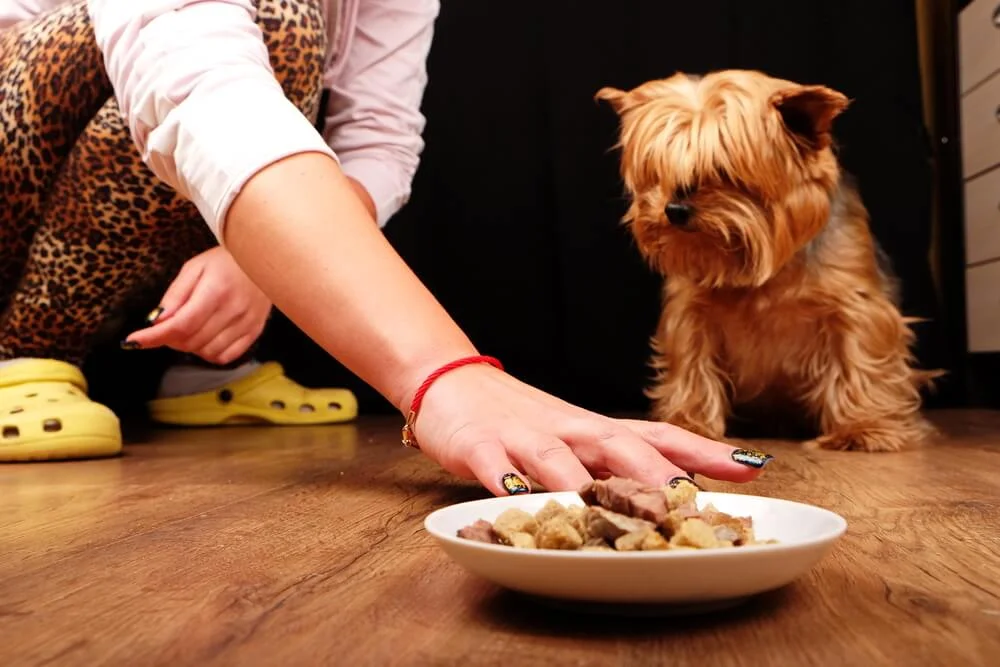
Sometimes dogs stop eating or become picky simply because they’re fussy, they’re bored of their dog food.
Your dog may not be eating because they feel nauseous, painful, weak, anxious, or otherwise unwell. However, sometimes dogs stop eating or become picky because they’re fussy, they’re bored of their dog food, or they are hoping you’ll give in and offer something tastier. Before you decide that your dog is just a bit fussy, it’s worth getting them examined by a veterinarian to make sure there’s no underlying health reason for their lack of appetite.
How can you encourage your dog to eat?
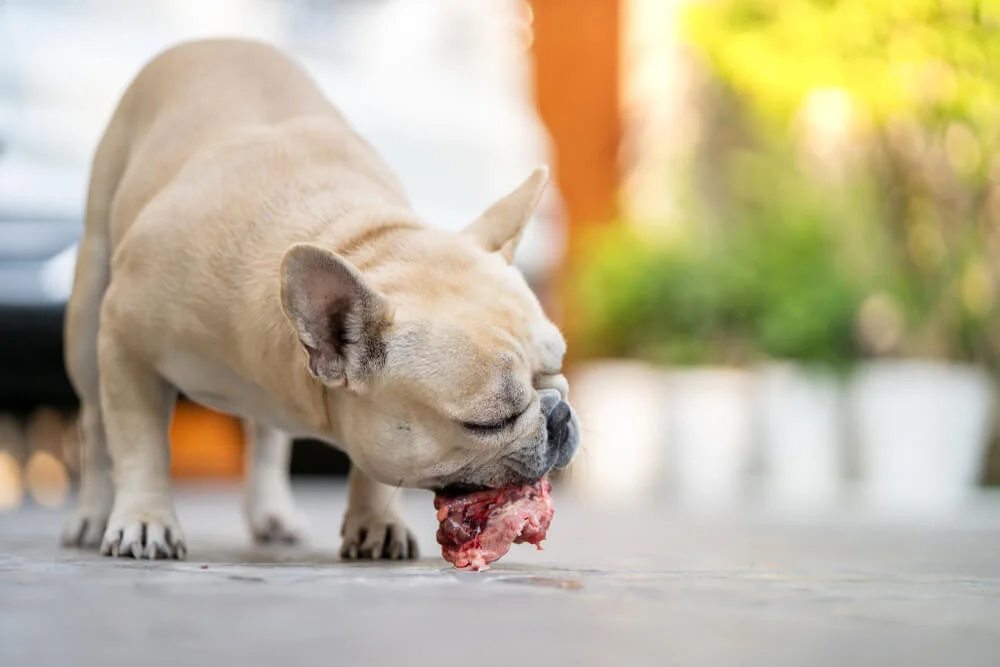
If you suspect that your dog isn’t a fan of their current dog food, try switching to something different – luckily, there are lots of different types and flavors of dog food out there.
If your dog has other symptoms of being unwell or seems to be in pain, it’s best not to spend too much time tempting them to eat and get them to a vet sooner rather than later. However, if you suspect that your dog just isn’t a fan of their current dog food, it might be time to switch to something different. There are lots of different types and flavors of dog food out there. If your dog is fussy they might be more enthusiastic about eating home cooked style dog food that contains human-grade whole food ingredients. After all, overly processed dog foods don’t just come with a higher risk of health issues, they’re also not as appetizing! Home cooked style dog food will retain more of its flavor, which your furry friend might find more appealing. Remember, though, it’s fine to offer your dog the odd bit of cooked chicken, turkey, or other lean meats to try to tempt them when they’re off their food. But if you decide to change their diet more permanently, it’s important to do so gradually so that you don’t upset their tummy.
Summary
There are lots of reasons why dogs stop eating. It might be a sign that they’re not feeling well, they’re painful, or they’re nauseous. Equally, if they’re stressed or anxious, they might not feel like eating. On the other hand, though, it might just be that they don’t like the dog food you’re offering. In this case, it’s worth trialing a different flavor, brand, or type, to see what they enjoy.
FAQ
What happens if a dog doesn’t eat for 3 days?
If a dog doesn’t eat for three days, they will start to feel weak. Their body will start to break down whatever fat reserves they have, before moving on to muscle. As time goes on, their organs may start to fail, and they could die.
Is it OK for a dog to go a day without eating?
Going one day without eating shouldn’t cause any serious consequences for a healthy dog. However, dogs who are already unwell may deteriorate more quickly. In any case, if your dog hasn’t eaten for a day or two, it’s best to seek advice from a veterinarian.



